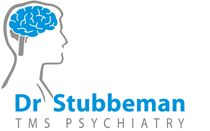
Category Archives: TMS


Psychiatrist offers new technology to battle depression
“This technology can be used instead of medication,” said Ablow, who is also a well-known author. “It can be appropriate for those who are profoundly depressed or for whom other solutions have not been successful. This is a well-tolerated solution that the data shows is very effective.” His mini-practice is known as New England TMS, and his office is one of the few in northern New England to be employing the technology, known as dTMS, or deep Transcranial Magnetic Simulation.
Local Clinic Offers Drug Free Depression Treatment
ALBUQUERQUE, N.M. (KRQE) – A local clinic is now offering depression patients a new drug-free treatment to help battle the disorder. The treatment, Transcranial Magnetic Stimulation (TMS), employs highly focused magnetic pulses to painlessly stimulate key neurons in the brain and clear away the dark clouds of the disorder. Albuquerque Psychiatrist, Dr. Ruben Sutter, joined KRQE’s This Morning team to discuss the procedure.
TMS Approaches for Major Depression: Is There a Clear Winner?
There are few differences in clinical efficacy and tolerability with different types of repetitive transcranial magnetic stimulation (rTMS) for major depression, new research shows. A systematic review of randomized clinical trials comparing the efficacy and tolerability of rTMS modalities showed they were largely equal but, to some extent, favored bilateral rTMS and priming low-frequency rTMS in the treatment of major depressive disorder (MDD).
Transcranial Magnetic Stimulation Modulates Resting EEG Functional Connectivity Between the Left Dorsolateral Prefrontal Cortex and Limbic Regions in Medicated Patients With Treatment-Resistant Depression
High-frequency left prefrontal repetitive transcranial magnetic stimulation (rTMS) has been shown to have efficacy in treatment-resistant depression. However, the effects of rTMS on functional connectivity are still not clear.
Did You Know There Are 4 Different Types of Depression?
Depression therapies range from lifestyle methods such as talk therapy and exercise, medicinal treatments such as prescription antidepressants, medical treatments such as transcranial magnetic stimulation or, in particularly tough cases, electroshock therapy. Up until now, deciding which therapies would work best for which patient has been a matter of trial and error, but this new Cornell research will help doctors match the type of depression someone has to the best treatment for that version specifically.
Stimulating the brain can bring back forgotten short-term memories
Some hopeful news for those who can’t remember new people’s names: stimulating the brain with a magnetic pulse can bring back forgotten short-term memories, as long as we know that we’ll need that information later.
Brain stimulation guides people through an invisible maze
You’re stuck in a maze. You can’t see the walls, or the floor. All you have to navigate is a device on your head stimulating your brain to tell you which way to go. In an experiment at the University of Washington in Seattle, participants solved a maze puzzle guided only by transcranial magnetic stimulation (TMS). The findings suggest that this type of brain prompt could be used to augment virtual reality experiences or help give people who are blind “visual” information about their surroundings.
The effect of subthreshold transcranial magnetic stimulation on the excitation of corticospinal volleys with different conduction times
Previous studies in humans interested in inhibitory synaptic activity at the level of the primary motor cortex (M1) have frequently used an electrophysiological technique call short intracortical inhibition (SICI). This technique consists of two subsequent pulses with transcranial magnetic stimulation (TMS)...
